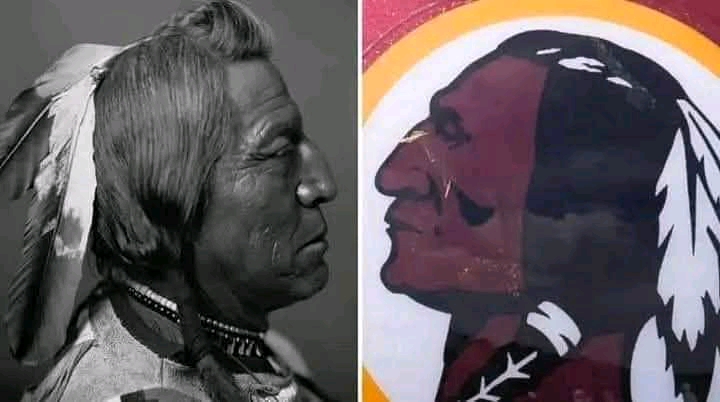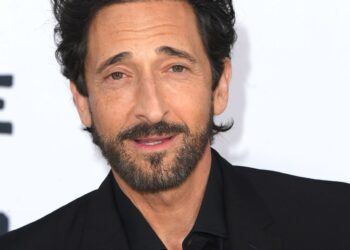The Family of the Blackfeet Chief Who Served as the Face of the Washington Redskins for 48 Years Wants His Image Back on NFL Fields
“The fans want him back and we want him back”
For nearly half a century, the face of Blackfeet Chief Two Guns White Calf adorned the helmets, jerseys, and fields of the Washington Redskins, symbolizing the team’s identity from 1971 until 2020. Now, five years after the franchise dropped its controversial name and logo amid a wave of social justice movements and corporate pressure, the family of Chief Two Guns White Calf is speaking out — and they want his image back.
“The fans want him back, and we want him back,” said Andre White Calf, a direct descendant of the iconic leader. “We were never asked about this. They erased our grandfather’s image without consulting us.”
The family’s appeal comes as the debate over Native American imagery in sports continues to evolve. In 2020, after years of public criticism and corporate sponsors threatening to withdraw support, the Washington NFL franchise dropped the “Redskins” name and logo, temporarily rebranding as the “Washington Football Team” before becoming the “Washington Commanders” in 2022.
For many Native American activists and organizations, the change was long overdue. They argued that the term “Redskins” was a racial slur and that the use of Native imagery perpetuated harmful stereotypes. But not all Native voices felt the same way — and among those dissenting was the family of the man whose likeness had become one of the most recognized symbols in American sports.
Chief Two Guns White Calf, a prominent leader of the Blackfeet Nation in the early 20th century, was known for his diplomatic efforts and his role in promoting U.S. tourism in Montana and Glacier National Park. His image was widely used in promotional materials, including the iconic Indian Head nickel minted between 1913 and 1938 — though historians debate whether he was the sole model for that coin.
In 1971, artist Walter Wetzel, a former chairman of the Blackfeet Nation and past president of the National Congress of American Indians, worked with the Washington team’s leadership to replace its original logo — a simple letter “R” — with a depiction of a Native American warrior based on Chief Two Guns White Calf. Wetzel believed the new logo would honor Native culture rather than mock it.
“My father didn’t see it as a caricature,” Wetzel’s son, Don Wetzel Sr., told reporters in 2020. “It was something that we were proud of.”
Now, members of the White Calf family argue that the decision to remove the logo ignored the history of their ancestor and the nuanced perspectives of the communities he represented. They have joined a growing group of fans and alumni who are pushing for the return of the original imagery, though not necessarily the old name.
“Our grandfather stood for dignity and leadership,” said Marjorie White Calf, another family member. “To take his face off the field without dialogue, as if it was shameful, that’s a disservice to his legacy. It was never about a mascot for us — it was about honoring a great man.”
Supporters of the logo’s return cite polls suggesting that many Native Americans did not find the team name or imagery offensive. A 2016 Washington Post poll found that 9 in 10 Native American respondents were not bothered by the Redskins name. Critics argue, however, that such polls are often methodologically flawed and that Native communities are not monolithic in their views.
“This is not about bringing back the name ‘Redskins,’” Andre White Calf clarified. “We understand that language evolves, and we’re okay with that. But there’s a difference between a slur and a respectful image of a real person who contributed to American history.”
The White Calf family and their allies face an uphill battle. The current Washington Commanders leadership has shown no public interest in restoring the logo, and the NFL is keen to distance itself from controversies involving race and representation. Nevertheless, the family plans to continue advocating for recognition of Chief Two Guns White Calf’s contribution and for a more inclusive process in determining how Native figures are represented in American sports.
“We are not here to speak for all Native people,” Marjorie White Calf emphasized. “But we will speak for our grandfather. His face stood for pride, not mockery. The fans want him back — and we want him back.”
As the Commanders’ ownership transitions under new leadership and as discussions about identity in sports evolve, the question of whether Chief Two Guns White Calf’s image should return remains unresolved. What is clear, though, is that for his family, the fight is about more than a logo — it is about honoring a legacy they believe should never have been erased.














